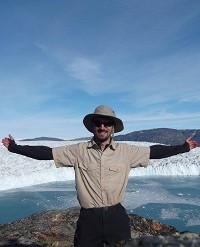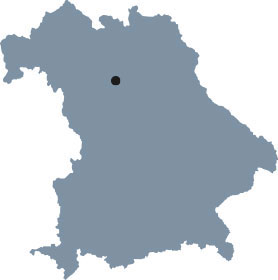DELIGHT (Deep-learning-informed Glacio-Hydrological Threat) Framework
Glacier retreat around the world due to climate change exposes a third of the world’s population to a range of hydrological hazards: chiefly changes in water quantity and quality, and also the risk of devastating glacier lake outburst floods (GLOFs). The DELIGHT Framework will for the first time model the entire hydrological pathway from precipitation, through glaciers, to rivers, using machine learning to accelerate the process, thereby generating more accurate forecasts of future risks.
| Place of research | FAU Erlangen-Nuremberg |
| Association | International Doctorate Program "M³OCCA" |
| Project duration | 2024 to 2030 |
| Group leader | Dr. Samuel Cook Contact the group leader |
| Further information | Website DELIGHT Framework |
Where will all the glacial meltwater go when?
The International Junior Research Group, funded by the Elite Network of Bavaria, is conducting research into developing a fully coupled suite of models that trace the entire hydrological pathway of glacierised catchments, from precipitation, through glaciers, to rivers. A third of the world’s population live in catchments with glacierised headwaters and will consequently be exposed to changes in water quantity and quality as glaciers retreat, as well as the possibility of GLOFs as water fills unstably dammed previously ice-covered depressions.
Accurately predicting these glacio-hydrological hazards requires modelling of the entire hydrological process chain, something not before possible as it would take too long to run the simulations. With the advent of machine learning and the resulting possibility to greatly accelerate the modelling of physical systems, this fundamental barrier is now being lifted, making more accurate predictions feasible for the first time.
The research group will work on developing this suite of models by combining several existing process models and augmenting or replacing certain parts with neural networks to make the whole run within a sensible timeframe. This work will be conducted with a range of international partners, including the University of Lausanne, Université Grenoble Alpes, the University of Bristol, the University of Zürich, the University of Innsbruck, and the Bavarian Academy of Sciences.


For the first time, we will be able to really show the long-term hydrological consequences of glacier melt anywhere in the world. With a bit of luck, it might encourage people to do something about it.
Dr. Samuel Cook
The Junior Research Group cooperates with the International Doctorate Program "M³OCCA" at Friedrich-Alexander-University in Erlangen-Nuremberg.


